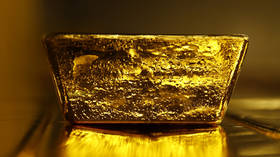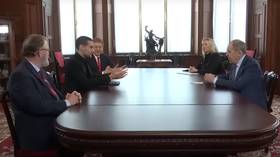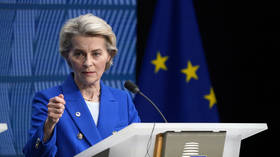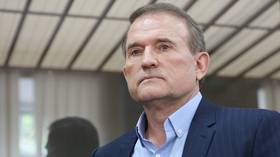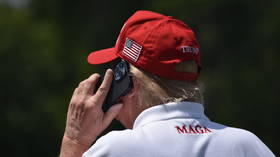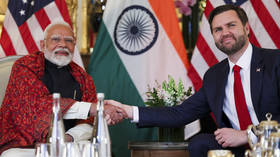EU eyes anti-Russia sanctions authority
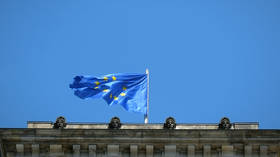
Lawmakers in the European Union are seeking a new authority to enforce sanctions against Moscow over the conflict in Ukraine, Mairead McGuinness, European Commissioner for Financial Services, told the Financial Times on Sunday.
According to the official, the bloc is considering an EU version of the Office of Foreign Assets Control (OFAC), a financial intelligence agency of the US Treasury Department, which spearheads enforcement of penalties.
“Anything that would help member states implement [sanctions], and where we see European oversight and co-ordination… would be a plus,” McGuinness said. “The idea of having an overarching view of sanctions and their implementation is one I would support.”
She added that as an alternative, Brussels could authorise its planned Anti-Money Laundering Authority (AMLA) to oversee sanctions, by amending legislation currently being thrashed out by the European Parliament and member states.
EU sanctions policy has faced criticism over uneven enforcement, with all measures proposed by the European Commission and approved by EU capitals being implemented by national authorities across the 27-nation bloc.
McGuinness claimed Brussels had made “extraordinary progress” in drafting the sanctions and co-ordinating them with international partners, and that there was “strong implementation across 27 different ways of doing business.”
“In some countries there’s a strong infrastructure on sanctions implementation and others not so,” she added.
Russia was hit with a wide range of Western sanctions over the conflict in Eastern Ukraine and reunification with Crimea back in 2014. The penalties have been substantially reinforced since February 24, when Moscow started its military offensive, turning the nation into one of the world’s most sanctioned countries, along with Iran, Cuba and North Korea.
For more stories on economy & finance visit RT's business section
